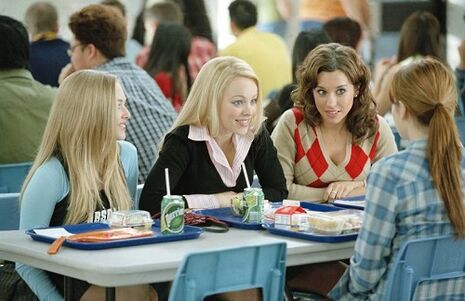Debunking the women’s college myth
Meggie Fairclough has a message for incoming Freshers

When I told my friends last year I was going to an all-women's college in Cambridge, their reaction was to ask which 'one' I was: a lesbian or a slut. When I told my Grandfather, he assumed that I was to attend a finishing school. Then when I got around to telling my teachers, they thought I wanted to become a nun, or was a 'full-on feminist' with the ambition to take over the world and rid it of all men.
These examples highlight the futility and stupidity of the myths surrounding women's colleges. They are narrow, and stereotype the individuals who study and live in Murray Edwards, Newnham and Lucy Cavendish whilst completely devaluing their abilities and experiences. They lead to discrimination, prejudices and put people off applying there in the first place; after all, who would want to attend a quasi-convent or brothel?
In reality, for me, none of these tales proved true. Unlike the majority of women who end up at Murray Edwards I was not pooled, but actually applied there. This is often greeted with shocked responses as to why I would actively seek out a college with a distinct lack of testosterone. Truth be told, the reason I applied there is that it felt right; I felt safe, comfortable and was offered cookies and cheery hellos by the Porters. My initial idea of a women's college, however, was heavily influenced by myths. I didn't fancy myself as an off-the-wall Sue Perkins type, or consider myself to be like the sheltered single-sex schooled women I'd assumed I would be staying with.
I have also come across the belief that those attending women's colleges are somehow less intelligent, and getting a place at one is easier. It doesn't take a genius to work out that male applicants don't exactly stand much chance of being made an offer, but society and other students should not assume, as some do, that the women selected are in any way academically inferior to members of mixed colleges. If you begin to look at the alumni, you will see the brilliant minds of Jocelyn Bell and Sylvia Plath fit easily beside the likes of Darwin. What's more, after achieving a first in my first year, I was told that the only reason for this is that I was at Murray Edwards, and they have lower boundaries. For all incoming Freshers, there is simply no truth in this; we all sit in the same exam theatre, we all attend the same lectures, we all achieve the same degree and we are all marked against each other by our subject faculties, independent of our colleges.
This nonsense has extended far enough that I have heard a straying tourist say that mine is not a 'real' college in the same sense as King's or St. John's. It is accentuated by the local shops selling postcards devoid of Newnham or Murray Edwards, or even as you walk down the stairs in Boots: the college crests are displayed on the staircase, with the exception of the women's colleges. Although we don't have quite the same tradition of walking round smoking tobacco through pipes, have no chapel and prefer garden parties to May balls, my college has just a part in making up Cambridge as any other college and should be recognised as such.
Life in a women's college is very different from my original preconceptions and the societal expectation. There are no gasps and hushed whispers if you see a male walking down the corridor, and moreover, at Saturday brunches or in the event of late night fire-alarms, you would be surprised to think it wasn't a mixed one.
Yes, there are people that confirm the stereotypes, but these people exist in all other colleges too; they are not endemic but merely reflect the individual differences that exist among people, instead of being concentrated in one specific place.
If you have read this, please don't subscribe to the myths that so many have fallen victim to already, in assuming that you know the type of women that are at Murray Edwards, Newnham and Lucy Cavendish. We are fabulous, diverse and cannot be put in the corner.
@meggiefai
 News / CUP announces funding scheme for under-represented academics19 December 2025
News / CUP announces funding scheme for under-represented academics19 December 2025 News / Cambridge welcomes UK rejoining the Erasmus scheme20 December 2025
News / Cambridge welcomes UK rejoining the Erasmus scheme20 December 2025 News / SU reluctantly registers controversial women’s soc18 December 2025
News / SU reluctantly registers controversial women’s soc18 December 2025 Film & TV / Timothée Chalamet and the era-fication of film marketing21 December 2025
Film & TV / Timothée Chalamet and the era-fication of film marketing21 December 2025 Features / In-person interviews through student helpers’ eyes20 December 2025
Features / In-person interviews through student helpers’ eyes20 December 2025









